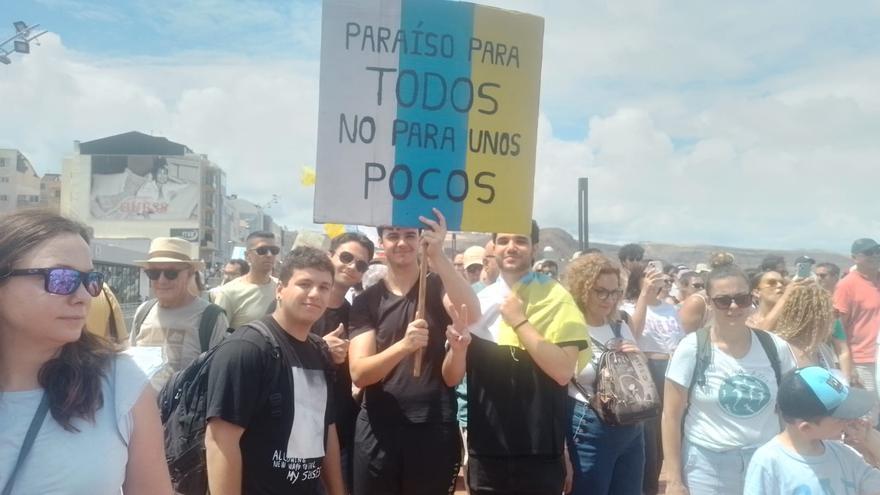
The Tenerife Association of Friends of Nature (ATAN) has announced on Thursday that collectives of the so-called 20A have scheduled a “major” demonstration after the summer in response to the “continuation of the development model and the inaction of the institutions”.
On April 20, the largest demonstration in the history of Canary Islands took place, leading to the belief that a few months later there would be at least a change in direction by the governments leading the archipelago’s institutions, but “nothing has changed,” according to a statement.
It is added that they have “delved even deeper into the development and predatory model of the territory that they have been perpetuating for decades”.
The 20A collectives say that “far from addressing the demands of the more than 200,000 people who took to the streets demanding a change in the economic and social model for the islands, the island governments have consistently rejected their demands”.
Among these demands, they point out a tourist moratorium, measures to limit the purchase of housing by non-residents, an eco-tax, and the suspension of projects that violate environmental and urban planning regulations.
And they criticize that this rejection has occurred both in parliamentary votes and in public statements.
Thus, the 20A collectives continue, “the abuse of the territory has continued, such as the approval of new hotel licenses, the repeal of the Climate Change Law or the advancement of the centralised energy model, as a reflection of the development model they perpetuate”.
The collectives emphasize that “they continue to see our natural spaces as places to exploit for tourism, they continue with airport expansions, they continue to propose more infrastructure such as trains, roads, and so on”.
They point out that the 20A “does not seem to have had an impact on the drafting of Bills such as the Tourist Use of Housing Act, an unrealistic regulation that is very permissive in terms of the percentages of holiday homes allowed and that does not even provide for an inspection and penalty regime to enforce it”.
According to the 20A collectives, the politicians “have also failed to halt projects with clear irregularities such as Cuna del Alma, in Tenerife, allowing sanctioning files to expire and favouring a scheme that allows it to continue”.
They state that the citizens have continued to mobilise after the 20A and implementing a participatory process ‘Canarias Palante’, “focused on collecting proposals for the construction of the new model”.
They criticise that despite formally requesting a negotiation table with the regional government, “no response has been received yet”.
They point out that in other regions of the country, the 20A protests have set an example to set limits, but in the Canary Islands “our public representatives continue to ignore and disregard the demands while celebrating tourist records month after month”.
These collectives stress that in order to materialise the changes they are asking for, it is necessary for governments to “focus on the people, nature, and heritage of these islands, and not on continuing to do business at the expense of the territory, undermining the quality of life of the people”.
They are of the opinion that the model and the new policies they are asking for “shake the privileges of a few, but with a lot of power. Therefore, a single demonstration is not enough to achieve the profound change we need, we must be consistent and show them once again something they seem to have forgotten: we are more than you”
[–>
To the Government of the Canary Islands, councils, local councils, the tourist lobbying groups and other individuals and entities “who benefit from the situation in the islands, we warn you: you will not silence us and our protests will only escalate if immediate measures are not taken to stop the deep environmental and social deterioration that the Canary Islands are experiencing”.
















